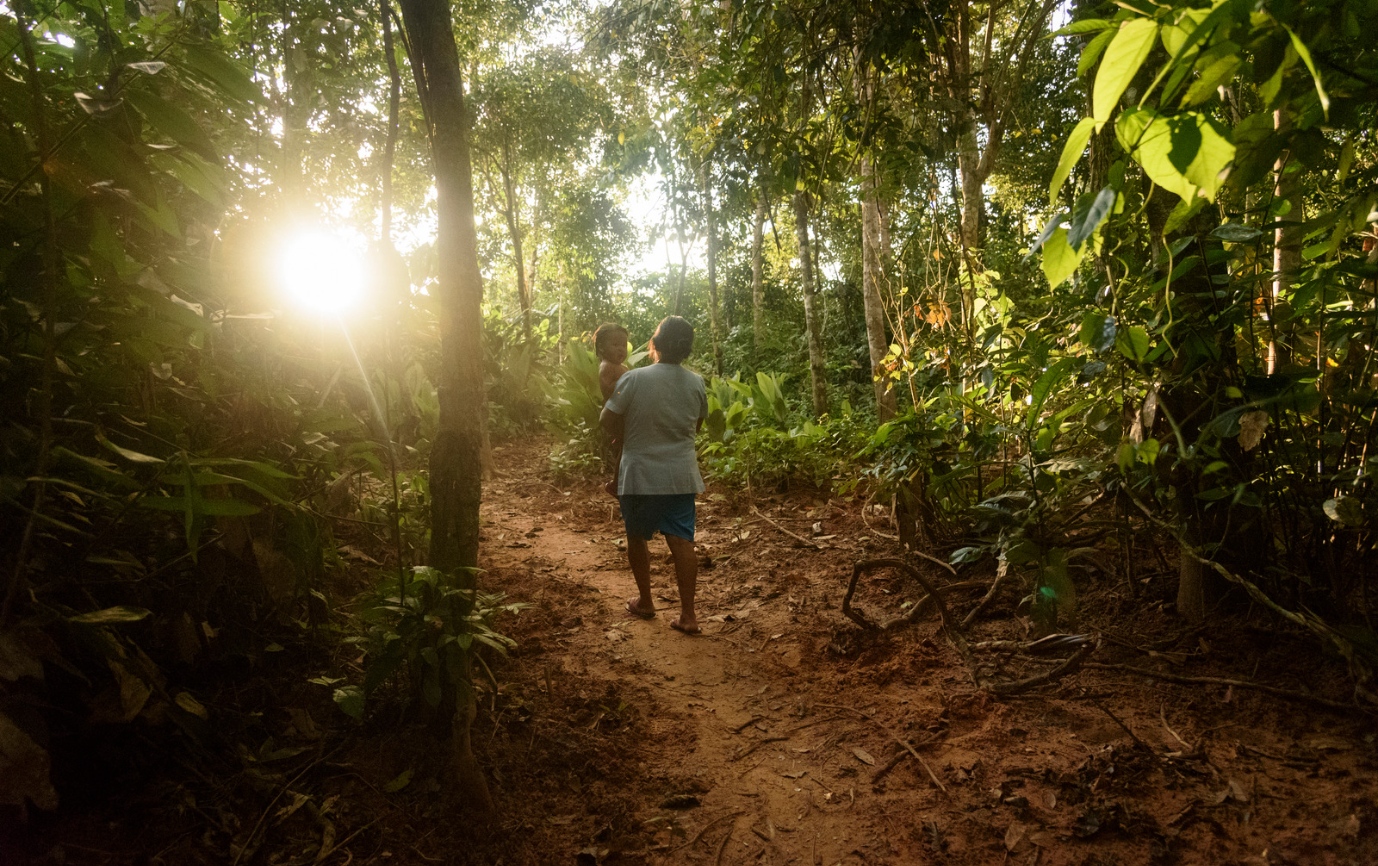
Nationally Determined Contributions (NDCs), high-level political commitments made by countries to undertake transformative low-carbon and climate-resilient action and contribute to the global response to climate change, form the backbone of the Paris Agreement.
Countries are increasingly recognizing the role of the Land Use, Land-Use Change and Forestry sector (LULUCF) as part of their mitigation efforts in their new or updated NDCs. According to the UNFCCC Synthesis Report (2021), 90 percent of the “second generation” NDCs -- new or updated NDCs that were due to be submitted to the UNFCCC by December 2020 — include the LULUCF sector, as compared to just 76 percent of “first generation” NDCs. Furthermore, 57 percent of these updated or new NDCs refer to forests specifically as a domestic opportunity for reducing emissions.
The UN-REDD Programme has been providing technical analysis and practical knowledge to countries on how to better integrate and align their REDD+ efforts with key provisions of the Paris Agreement and related implementation, particularly with regard to the submission and review of their NDCs.
There are several cases in which countries have submitted new or updated NDCs which more fully incorporate REDD+ as compared to their initial submissions. Ecuador was one of the first countries to do so, having enhanced its NDC through REDD+. The country’s NDC was developed with the support of UN-REDD, including targeted support from the Food and Agriculture Organization of the United Nations (FAO). In order to develop a robust NDC with respect to the AFOLU sector, Ecuador used the knowledge gained during the implementation of its UN-REDD national programme and targeted support to develop the reference scenario and mitigation activities for the sector. The LULUCF action plan of the NDC is informed by the national REDD+ action plan, setting the same quantified greenhouse gas target. The reference to the national REDD+ action plan in the NDC, as the strategy for reducing deforestation in the entire country, reinforces the action plan as the jurisdictional strategy around which, in practice, all the interventions to be implemented in the country by subnational jurisdictions are to be coordinated. Given that the national REDD+ action plan is the prime foundation for the LULUCF component of Ecuador’s NDC, it follows that this component is based on several years of participatory processes and feasibility studies, achieved through the REDD+ readiness process.
Another country example is Cambodia, where the potential for NDC enhancement via REDD+ was explicitly recognized in the first NDC submitted in 2017. While the LULUCF sector was included more generally in that initial NDC, the document also indicated that a precise list of actions and greenhouse gas effects would be provided in the future, after finalization of the REDD+ strategy. Cambodia then submitted its updated NDC in 2020 with the support of the Climate Promise, delivering on its stated intention to enhance the focus on REDD+. The country transitioned from sectoral targets to an economy-wide target, aimed at raising its mitigation ambition to a 42 percent reduction in 2030 compared with business as usual. This includes an AFOLU sector target to halve the deforestation rate by 2030. UNDP supported Cambodia in its modelling efforts, leading to the inclusion of this ambitious quantitative target, aligned with the national REDD+ strategy, and a revised NDC that is more robust and comprehensive.
As countries continue to enhance their NDCs over time, advance in NDC implementation and prepare to track NDC progress, they are learning valuable lessons through their experiences with REDD+ readiness and implementation. This is elaborated upon in more detail, with additional country examples, in the Info Brief titled, Linking REDD+, the Paris Agreement, Nationally Determined Contributions and the Sustainable Development Goals: Realizing the Potential of Forests for NDC Enhancement and Implementation.
While progress is being made, as the country examples above demonstrate, it is also clear that many countries have not yet fully explored the opportunities that REDD+ can bring to the NDC process to facilitate both mitigation and adaptation efforts in the forest sector. This points to the value of ongoing support through UN-REDD, as well as through support by UN-REDD partners through other closely related initiatives, such as the Climate Promise and CBIT-Forest.
Not only can REDD+ enhance NDC ambition and implementation in the forest sector, but considerations and lessons learned from REDD+ implementation can also inform technical guidance, dialogue and initiatives related to the broader range of nature-based solutions in NDCs. This can, therefore, contribute to realizing the full potential of nature to achieve global climate goals as recognized in the Glasgow Climate Pact.


